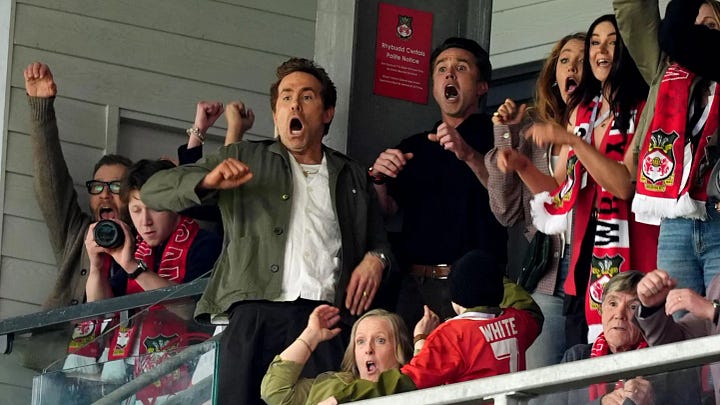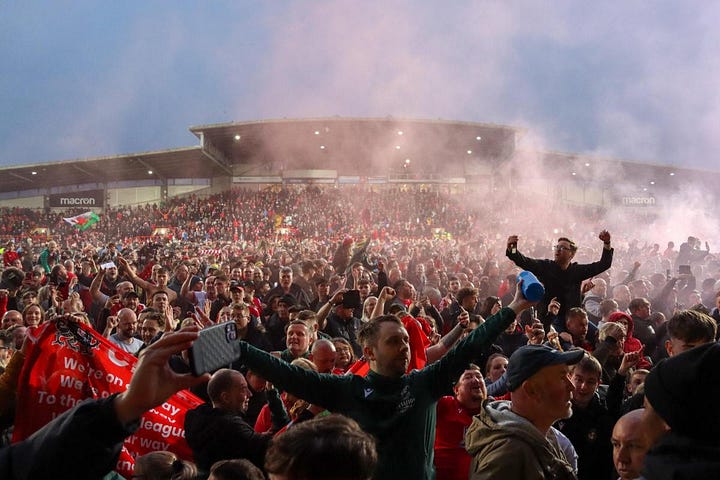What They Don’t Tell You About Owning a Football Club
The Hidden Playbook Behind Real Football Success
Everyone wants a club these days. Private equity guys, influencers, billionaires with a midlife itch. They walk in thinking it’s a game of Football Manager with better suits. Buy low, sell high, pick the starting eleven and post some tunnel shots.
Then reality hits. Hard. Because owning a football club isn’t just about cash. It’s ego. Infrastructure. Governance. Chaos. It’s the hardest business you’ll ever love. And the easiest one to get wrong.
This isn’t theory. We’ve lived it. Between us, we’ve sat in boardrooms, brokered deals, restructured clubs and navigated the tightrope between story and spreadsheet. We’ve been involved in major transfers, club strategies, and the kind of calls no agency deck can prep you for.
This piece isn’t a warning. It’s a breakdown. A stripped-back view of what really matters when the cameras stop rolling and the accounts start bleeding.
Here are five truths they don’t put in the brochure.
1. It’s not about transfers
The first thing most new owners want is a marquee signing. A big name. A hero for the press release. But smart owners don’t build hype. They build foundations. The backroom staff, scouting network, facilities, nutrition, logistics, data systems, CRM, internal workflows. The unsexy stuff.
Your record signing might bag 15 goals. Yet a modern analytics department could bring you 10 points. Just ask Brentford. Their data team helped drive a 16-point swing over two seasons, with no marquee signings.
A proper rehab setup might keep your full-back on the pitch all season. That’s the edge. Not Instagram reveals.
Alexander Jarvis: “If the first thing you want to do is buy a striker, you’re already a liability. Build the machine before you throw capital at players and agents speculatively.”

2. You need a local army
Global vision sounds good in a pitch deck. Still, you win games and hearts on the ground. Local contractors. Local community. Local loyalty. Clubs die when they turn their backs on their postcode.
Hire the security team who’ve worked the gates for a decade. Keep the woman who runs hospitality because she knows who drinks what and why. Let the groundsman stay. He doesn’t need a PDF. He needs his mower and some respect. Wrexham nailed this. Keeping local staff front and centre wasn’t just kind. It built trust.
Fans don’t just support the badge. They support the people holding it up. This is where most owners mess it up early. They arrive, think it's plug-and-play, and lean on an exec search firm to build their senior team. Before you know it, you’ve hired a CEO who’s never heard the club song and a Technical Director with a perfect CV but no sense of the DNA. I laugh, then I cry, when I see it. Twelve months later, they’re gone. But the cost stays.
Recruitment at the top isn’t about LinkedIn profiles. It’s about instinct, track record and first-hand experience. Ears to the ground. You need people who’ve seen how a club really works. Not from a slide, but from inside.
3. Data won’t save you without story
Everyone’s obsessed with models. xG, xA, xWhatever. But numbers don’t fill stadiums. They don’t convince a winger to sign when he’s got two better offers. They don’t stitch your identity together.
Clubs need narrative. A sense of who they are and why they matter. Venezia FC turned identity into influence, blending sport and fashion to grow global relevance. Culture builds context. Context builds clarity. And clarity is what lets you recruit, commercialise and grow with purpose.
It’s not science or storytelling. It’s both.


4. Fans aren’t customers
They don’t shop around. They don’t leave a bad Yelp review and move on. They stay. Through relegation, debt, chaos and boardroom disasters. That’s not customer behaviour. That’s religion. You don’t optimise fans. You respect them. Bring them into decisions. Treat them like owners of the experience, not just buyers of the product. When you stop chasing transactions and start chasing trust, the money follows.
Look at FC St. Pauli. Built on values, not just results. Today they rank fourth in Germany for merchandise revenue. That’s proof trust pays off.
Jordan Wise: “The loyalty in football is irrational. But that’s its value. If you treat fans like humans, not data points, they’ll carry you further than any marketing funnel ever could.”
5. Culture wins in the long run
You can buy a moment. You can’t buy a movement. Culture is what turns a club from a portfolio play into a legacy. It’s the look and feel. The rituals. The things that make it unmistakably yours. Ajax proves this. They lead Europe with 84 homegrown players active in top competitions. That’s a direct result of cultural clarity and identity.
The tunnel walk. The stadium playlist. The badge redesign that feels modern but rooted. The way your players speak in interviews. All of it matters. It’s how you build something people want to belong to. Short-termism is a killer. Owners who don’t get culture usually don’t last long enough to learn it.
Owning a football club isn’t for the faint-hearted. It’s not a content strategy. It’s not a real estate deal with a stadium attached. It’s high-risk, high-emotion, high-stakes territory.
But if you do it properly, it can be transformational. Build for the long term. Think like an operator. Move like a fan. Create something with substance. Not spectacle. That’s legacy.
Thanks for reading GAMEPLAYER.
Through CAOS, GAFFER, and over 100 football contracts, transfers, brand deals, and equity-driven partnerships, I’ve seen power shift from clubs to investors, brands to athletes, and legacy to culture.
I break down what matters. Private equity takeovers, athlete-led media, billion-dollar sports IP, and the future of merchandising and streaming.
This isn’t just commentary. It’s about who’s making the real moves and what’s coming next.






I enjoyed this breakdown. I bought into Caledonian Braves, a newish fifth-tier club in Scotland that’s probably about the level of NPSL or USL 2 in the U.S. Now, I did it with no expectations, but the naïveté and grand delusions of some of the 8,000 or so “owners” is comical. I feel for actual owners and the people actually doing the club’s day-to-day business; they had no idea what they were letting themselves in for (they did raise $2.5 million, though 🤷🏻♂️)….